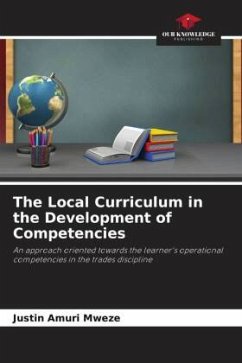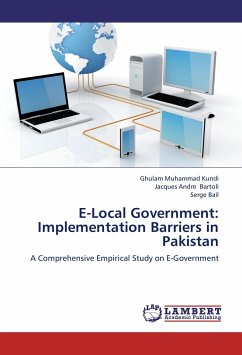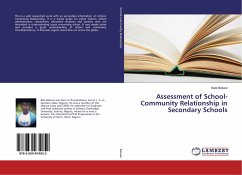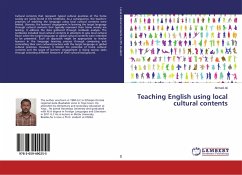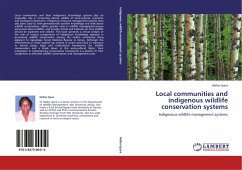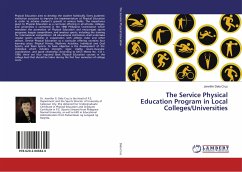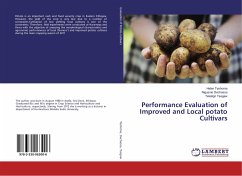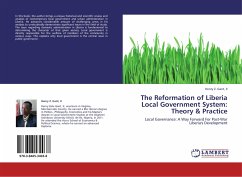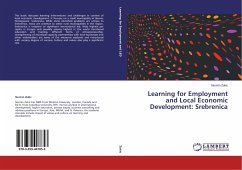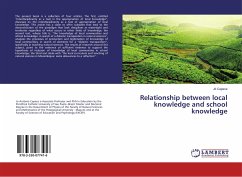
Relationship between local knowledge and school knowledge
Versandkostenfrei!
Versandfertig in 6-10 Tagen
24,99 €
inkl. MwSt.

PAYBACK Punkte
12 °P sammeln!
The present book is a collection of four articles. The first, entitled "interdisciplinarity as a tool in the appropriation of local knowledge", discusses on the interdisciplinarity as a tool of appropriation of local knowledge. This article has a claim to offer subsidies that lead to the deconstruction of the paradigm that look disciplines as watertight and territories regardless of what occurs in other fields of knowledge; the second text, whose title is, "the knowledge of local communities and school knowledge: in search of a didactic transposition in natural sciences", analyzes the processe...
The present book is a collection of four articles. The first, entitled "interdisciplinarity as a tool in the appropriation of local knowledge", discusses on the interdisciplinarity as a tool of appropriation of local knowledge. This article has a claim to offer subsidies that lead to the deconstruction of the paradigm that look disciplines as watertight and territories regardless of what occurs in other fields of knowledge; the second text, whose title is, "the knowledge of local communities and school knowledge: in search of a didactic transposition in natural sciences", analyzes the processes of production and legitimation of knowledge of local communities, in search of elements for a "didactic transposition", specifically in teaching natural sciences. The results of research around this subject, point to the existence of sufficient evidence to support the hypothesis of inclusion of knowledge of local communities in school knowledge; the third text deals with "the local curriculum and teaching of natural sciences in Mozambique: some allowances to a reflection".



